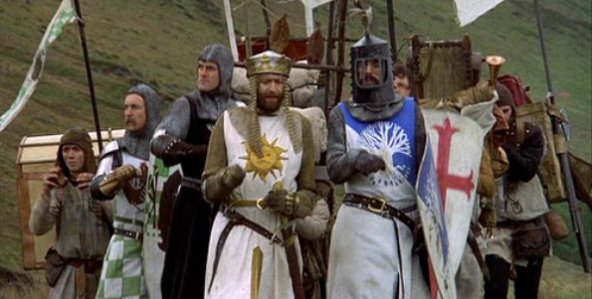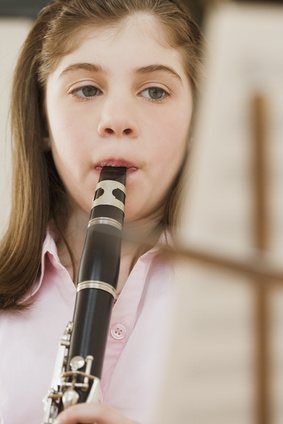I used to teach young people how to play the clarinet or saxophone. Usually when they had got bored with playing the recorder and fed up with joint music lessons at school (how DO you teach a room full of kids to play whatever instrument they might be holding, all at the same time?).
I used to get the parental briefing before the first lesson: “get him through the grades as fast as you can so it looks good on his job applications” kind of summed it up. It was all about me sprinkling some magic dust so that their cherished offspring could breeze through music exams and show how hard working AND gifted they were to have passed Grade 5 by the age of twelve or whatever. This would mark them out against their rivals, and unlock doors to careers and rewards their parents probably didn’t enjoy. It was about their child “bettering themselves”, pure and simple.
Nothing in there about having fun, learning to appreciate beauty, expressing themselves, inspiring them to want to explore the art world more etc. It was all about progress, being ahead of the competition, and the aspiration of the parent; NOT the gift of music and the joy it brings.
Lynsey was the one exception. She was lucky. All her parents cared about was that she should enjoy it, and hopefully kindle a lifelong interest in something new. They were completely laid back about how much progress they wanted her to make: the key was that she should learn to appreciate this new language.
I taught Lynsey from the time, aged 7, when she first squeezed a rather nasty squawk out of her clarinet to the point where only a few years later she and I used to spend a whole evening making great music together. Finzi, Saint-Saens, Brahms, Poulenc. They had a superb Bechstein piano as well, and every week the two of us were able to enjoy a beautiful musical journey: it felt to us like we were “performing” every time we played, and it had both of us uplifted and full of emotion for hours on end.
We got there because Lynsey loved playing. Because we had no “agenda” or “goals” (we did an exam every now and then just to track progress and for the satisfaction of having someone else verify how good she was), she learnt to revel in it for its own sake. She learnt to love the sound, the partnership of playing with an accompanist, and the vehicle for expression it used to give her. Mum and Dad, listening from the kitchen, used to creep in with coffee and cake at half time, visibly moved by what was going on in their sitting room.
Lynsey was appreciating the “Now”. She wasn’t “benchmarking” herself against anyone else, or trying to master the last movement of that Saint-Saens sonata that is so fiendishly difficult; the first movement is a thing of beauty that she could play movingly and with conviction. This was enough.
Being comfortable with who you are and what you are capable of is a key to happiness. Paul Mooney, whose article “Are you comfortable in your own skin?” inspired me today, puts it this way:
“Most people are so busy ‘becoming’ something, they forget that they are someone special, unique, talented – with a lot to offer that’s already in place.”

They’re exhausted, frustrated, and in a hurry. Are you one of them?
For those of you not in a hurry, here is some of that Saint-Saens clarinet music I was referring to, played by 13 year old Han Kim. Just listen to the first 1 min 45 seconds if you’re pushed. Lynsey and I used to play this once a week. Happy days!
[youtube=http://www.youtube.com/watch?v=HCNgyg-rdB8]
© bst2012 – Fotolia.com
Monty Python image: www.ifccentre.com



Beautiful music to relax me this afternoon–thank you! Did Lynsey continue her music career?
Beautiful music–thank you! Did Lynsey continue with her music career?
Michael, I enjoyed reading this and the great music in the video. Good for you on your work with Lynsey and other young people. Indeed, less worry and focus on getting to some place out there. Enjoy and respect where you are now. Then we can step forward.
– Michael H.
Thank you Michael. It is so sad that we all feel the pressure to be permanently climbing up some ladder, when in fact there is plenty of satisfaction to be had where we are right now.
Teaching Lynsey and one other with the same attitude was the most worthwhile and uplifting of times. With the rest it was just another job.
Your story about Lynsey really chimed with my experience.
In my early twenties, I trained as a professional youth worker and whilst I have managed to largely avoid pursuing a holy grail of self-improvement, is probably why I’m a consultant these days.
For just as one used to support teenagers grappling with what life was throwing at them, not much has changed today. Sure, the clients are older, but despite often being high fliers, they still seem to need help in tackling issues that confront them. Long may it continue…
Yes indeed David! Without corporate aspiration where would the likes of you and I be?!
A lovely read Michael, and I can’t believe he is only 13! A beautiful piece of music … and I listened to the very end. I will consider all this now my children are taking up flute and guitar!
Hi Claire
So glad you enjoyed it. Yes, my best advice to you would be to forget the exams and treating this as part of a “CV credibility initiative” and letting them find their own way without pressure. I think you’ll find this unlocks their energy and it moves from being just another school extra curricular activity into something they actually want to do. Then they’ll progress that much faster.
Yes, isn’t he amazing for 13? Prodigy?
Enjoy!